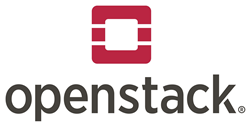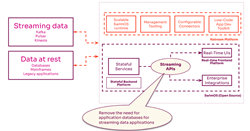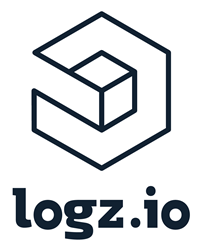
When open source is aligned with commercial interests, there is a fantastic, mutually beneficial symbiosis, but when the leadership and control structure is unbalanced, the community suffers. The RESF is uniquely structured to help maintain this balance so everyone benefits.
RENO, Nev. (PRWEB) February 08, 2023
The Rocky Enterprise Software Foundation (RESF) today announced the initial board of directors that are leading the effort to preserve the longevity, stewardship and innovation of enterprise-grade open source software that is always freely available.
Founded in early 2021, the RESF exists to organize open source communities comprising enterprise, research, academia, individuals and other institutions to collaborate on building and maintaining the open source tools that enterprises and other professional organizations need. The organization’s governing structure and rules for hosting open source projects are outlined in the RESF charter and bylaws, which ensure community control while specifically enabling enterprise use cases and the participation of vendors and other commercial entities.
Per the RESF charter and bylaws, all board seats are elected by peers based only on merit. Unlike other open source foundations, board seats cannot be purchased or bought. To align with corporate open source development interests while protecting the community and projects from corporate and business agendas, no single company can represent more than one-third of any voting board. It is the job of the board to ensure that the community-focused vision and mission of the RESF is always followed.
Board members include:
LOUIS ABEL is a system engineer who started his Linux journey in 2005. He has been in the Enterprise Linux world both personally and professionally for almost a decade and a half, jumping between automation, system hardening and security and identity management. Abel is a Rocky Linux co-founder, has been a part of almost all engineering initiatives across the project, and has been a co-lead of the release engineering team since the inception of the project.
“I’ve been part of Rocky Linux since the very beginning, and we’ve done some amazing work with amazing folks whom I’ve come to value and cherish my time with,” said Abel. “Looking forward, I’m excited to see where Rocky Linux goes and how the RESF can better help the enterprise software community by supporting and being part of even more projects.”
BENJAMIN (BEN) AGNER is one of the co-founders of Rocky Linux and was a co-author of the RESF charter and bylaws. He has over two decades of IT, security, engineering, governance, risk and compliance experience, ranging from hyper-growth startups to large enterprises, and has spent the majority of the last decade securely implementing and managing open source software in the enterprise. Agner currently works at Unum, a Fortune 250 insurance company, as its deputy chief information security officer.
“I’m excited about the prospect of continuing my support of the Rocky Linux team by helping build, guide and advise the RESF and its associated member projects,” said Agner. “I believe that open source software is a key enabler and competitive differentiator for many enterprise companies, and the community-supported and transparent nature of open source software is key to building and maintaining secure enterprise systems.”
CHRIS DIBONA is an independent engineering leader located in the United States. He has been an advisor to the Royal United Services Institute, the world’s oldest defense and security think tank, since 2016. He was the director of engineering for open source at Google from 2004 through 2023 where he launched a variety of platforms and projects, including Android, Go, Chromium and Kubernetes. In 2015 DiBona was a member of the U.S. Commerce Department’s Data Advisory Council, and he spun up the All for Good jobs site for the Obama administration. DiBona has written two books on open source, presented to broad audiences worldwide, and is a limited partner with Rally Ventures and Mercury funds. He earned a master’s degree in software engineering from Carnegie Mellon University.
“Rocky Linux is very much what I consider the exciting present and wildly impressive future of Linux distributions,” said DiBona. “It’s where we’re going in cloud, HPC and even smaller installations looking for a distribution you can count on.”
GREG KROAH-HARTMAN is a well-known Linux kernel maintainer at the Linux Foundation and is in charge of the stable kernel releases. He maintains various driver-related subsystems in the kernel, has been involved in the kernel developer community since 1999, and has been a member of the Linux kernel security team since it was founded. He was also responsible for udev, which is now part of the systemd project, and maintains other various low-level userspace tools for Linux. Kroah-Hartman is very happy to be helping the community of enterprise users by ensuring that Rocky Linux has a stable and secure kernel as a basis for all users to rely on.
“I’m happy to be a part of the RESF to help ensure that we remain focused on our goals of being closely aligned with the open source communities that they depend on, as well as helping them provide a stable and secure kernel based on the upstream kernel releases for all Rocky Linux users to be able to rely on,“ said Kroah-Hartman.
GREGORY M. KURTZER is a 20-plus-year veteran in Linux, open source and high performance computing. He is well known in the HPC space for designing scalable, secure and easy-to-manage architectures for innovative performance-intensive computing while working for the U.S. Department of Energy with a joint appointment to UC Berkeley. Kurtzer has created multiple successful companies and is presently the CEO and founder of CIQ. In open source, he has founded, co-founded and led several large projects such as CentOS Linux, the Warewulf and Perceus cluster toolkits, the container system Singularity (now renamed to Apptainer) and, most recently, Rocky Linux.
“Fundamentally, open source is a collaborative development model that is very effective for the community to come together and solve big problems,” said Kurtzer. “When open source is aligned with commercial interests, there is a fantastic, mutually beneficial symbiosis, but when the leadership and control structure is unbalanced, the community suffers. The RESF is uniquely structured to help maintain this balance so everyone benefits. This board will help to drive the vision of open source enterprise software, and it is an honor to be selected by the membership to help lead this initiative.”
MARK WATSON has more than 40 years of hands-on experience supporting research economists, researchers and engineers. Watson retired in January 2022 from the Federal Reserve Bank of Kansas City, where he served as vice president and director of the Center for the Advancement of Data and Research in Economics (CADRE). Watson led the establishment of CADRE, a cyberinfrastructure that supports the computational computing and data needs for 650-plus economists and researchers in and outside the Federal Reserve System. He also spearheaded the Federal Reserve Bank of Kansas City’s efforts to develop expertise in high performance computing, parallel data warehousing technologies and big data initiatives. Prior to joining the Federal Reserve Bank of Kansas City, Watson spent 15 years working in the Department of Energy’s nuclear weapons complex as a technical programmer and administrator of databases and Unix environments and precision measurement. Watson has been an open source enthusiast since he was first introduced to it in 1995.
“The opportunity to help promote open source enterprise software takes me back to my fundamental IT roots,” said Watson. “I’ve been a proponent and consumer of open source software just short of three decades. Working on the RESF Board is a dream come true.”
The RESF board election took place from December 7-21, 2022 with all current RESF members voting. The initial priorities for the board are to ensure that the organization’s project structure is completed and that directors are named, to ensure community alignment and representation, and to help the RESF and its projects with growth, structure, alignment, sponsors, partnerships and other support.
The first meeting of the RESF board occurred on January 16 to select the projects, establish the Project Board structure and review financials. The board minutes can be found here.
The RESF welcomes any open source projects that need a neutral ground to operate to make the RESF their home. No association with Rocky Linux is necessary to join the RESF. Projects do not need to be Linux related, but they must be open source. Entities interested in bringing their open source projects to RESF can contact hello@resf.org for more information.
About the RESF
The Rocky Enterprise Software Foundation (RESF) exists to organize open source communities comprising enterprise, research, academia, individuals and other institutions to collaborate on building and maintaining the open source tools that these organizations need. The vision of the RESF is to create and nurture a community that is committed to ensuring the longevity, stewardship and innovation of enterprise-grade open source software that is always freely available. Organizations interested in becoming a sponsor and learning about the multiple benefits of RESF sponsorship should contact sponsor@resf.org. Individuals interested in becoming a member of the RESF must first be active in an RESF project; visit the Rocky Wiki to learn more.
- SEO Powered Content & PR Distribution. Get Amplified Today.
- Platoblockchain. Web3 Metaverse Intelligence. Knowledge Amplified. Access Here.
- Source: https://www.prweb.com/releases/rocky_enterprise_software_foundation_resf_elects_first_board_of_industry_leaders/prweb19160910.htm
- 15 years
- 1999
- 2016
- 2021
- 2022
- 2023
- a
- Able
- About
- Academia
- across
- active
- administration
- advancement
- advisor
- advisory
- aligned
- All
- always
- amazing
- and
- android
- announced
- appointment
- associated
- Association
- audiences
- Automation
- available
- back
- Balance
- Bank
- based
- basis
- becoming
- Beginning
- being
- believe
- beneficial
- benefits
- Berkeley
- Better
- between
- Big
- Big Data
- board
- board of directors
- Books
- bought
- Bringing
- broad
- build
- Building
- business
- cannot
- Carnegie Mellon
- Carnegie mellon university
- cases
- Center
- ceo
- CEO and Founder
- charge
- cherish
- chief
- chief information security officer
- chromium
- City
- closely
- Cloud
- Cluster
- Co-Author
- Co-founder
- co-founders
- collaborate
- collaborative
- come
- Commerce
- commercial
- committed
- Communities
- community
- Companies
- company
- competitive
- Completed
- complex
- compliance
- computing
- Consider
- consumer
- contact
- Container
- continuing
- control
- Corporate
- Council
- create
- created
- Current
- Currently
- data
- databases
- decade
- decades
- December
- Defense
- Degree
- Department
- Department of Energy
- deputy
- designing
- develop
- Developer
- Development
- differentiator
- Director
- Directors
- distribution
- distributions
- dream
- drive
- Early
- earned
- Economics
- economists
- Effective
- effort
- efforts
- elected
- Election
- enabling
- energy
- engineer
- Engineering
- Engineers
- ensure
- ensuring
- Enterprise
- enterprise software
- enterprise-grade
- enterprises
- enthusiast
- entities
- environments
- establish
- establishment
- Even
- everyone
- excited
- exciting
- exists
- experience
- expertise
- fantastic
- Federal
- federal reserve
- Federal Reserve Bank
- financials
- First
- focused
- followed
- Fortune
- Forward
- found
- Foundation
- Foundations
- Founded
- founder
- from
- fundamental
- funds
- future
- Go
- Goals
- Goes
- going
- good
- governance
- Ground
- Growth
- guide
- Half
- hands-on
- happy
- help
- helping
- High
- High Performance Computing
- Home
- hosting
- How
- hpc
- HTTPS
- Identity
- identity management
- image
- implementing
- impressive
- in
- inception
- include
- Including
- independent
- individuals
- information
- information security
- initial
- Initiative
- initiatives
- Innovation
- innovative
- Institute
- institutions
- insurance
- interested
- interests
- introduced
- involved
- IT
- January
- Job
- Jobs
- join
- joining
- joint
- journey
- Kansas
- Kansas City
- Key
- known
- Kubernetes
- large
- Last
- launched
- lead
- leader
- Leadership
- leading
- LEARN
- learning
- Led
- Limited
- limited partner
- linux
- linux foundation
- located
- longevity
- looking
- maintain
- maintains
- Majority
- make
- management
- managing
- many
- master’s
- meeting
- Mellon
- member
- Members
- membership
- Mercury
- Merit
- minutes
- Mission
- model
- more
- most
- multiple
- mutually
- Named
- Nature
- necessary
- Need
- needs
- Neutral
- news
- nuclear
- Nuclear weapons
- Obama
- occurred
- Officer
- oldest
- ONE
- One-third
- open
- open source
- open source development
- open source projects
- operate
- Opportunity
- organizations
- Other
- outlined
- outside
- Parallel
- part
- participation
- partner
- partnerships
- performance
- Personally
- Place
- Platforms
- plato
- Plato Data Intelligence
- PlatoData
- Precision
- present
- presented
- president
- Prior
- problems
- professional
- professionally
- Programmer
- project
- projects
- promote
- proponent
- prospect
- protecting
- provide
- purchased
- rally
- ranging
- RE
- recently
- related
- release
- Releases
- rely
- remain
- represent
- representation
- research
- researchers
- Reserve
- reserve bank
- Reserve system
- responsible
- review
- Risk
- rocky
- royal
- rules
- Said
- scalable
- secure
- securely
- security
- selected
- Services
- several
- Short
- should
- since
- Since 2016
- single
- singularity
- site
- smaller
- So
- Software
- software engineering
- SOLVE
- some
- Source
- Space
- specifically
- spent
- sponsor
- Sponsors
- sponsorship
- spun
- stable
- started
- Startups
- States
- Stewardship
- structure
- structured
- successful
- such
- Suffers
- support
- Supporting
- Supports
- system
- Systems
- takes
- team
- Technical
- Technologies
- The
- The Projects
- the world
- their
- Think
- think tank
- three
- Through
- time
- to
- today
- together
- tools
- transparent
- true
- u.s.
- United
- United States
- university
- unix
- use
- users
- value
- variety
- various
- vendors
- Ventures
- veteran
- Vice President
- vision
- Voting
- Warehousing
- Watson
- Weapons
- Welcomes
- well-known
- What
- which
- while
- WHO
- will
- Work
- working
- works
- world
- worldwide
- written
- years
- zephyrnet











